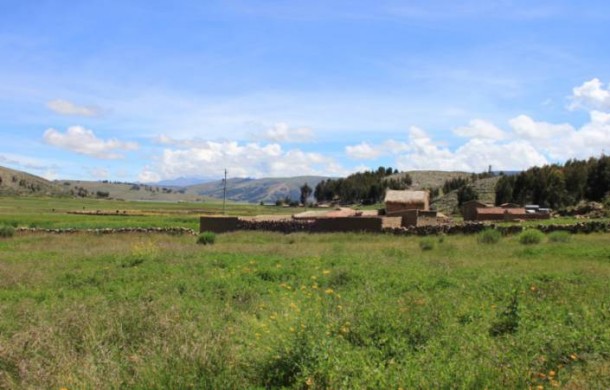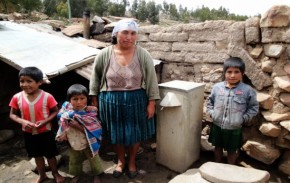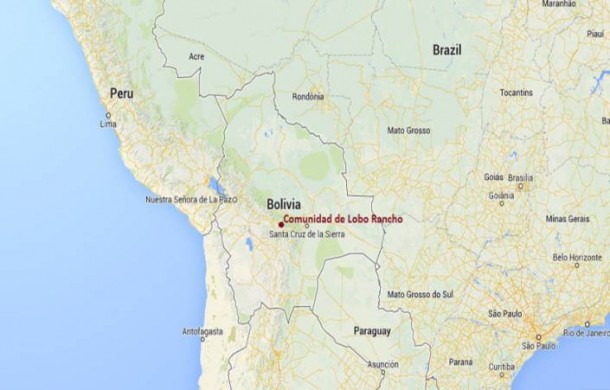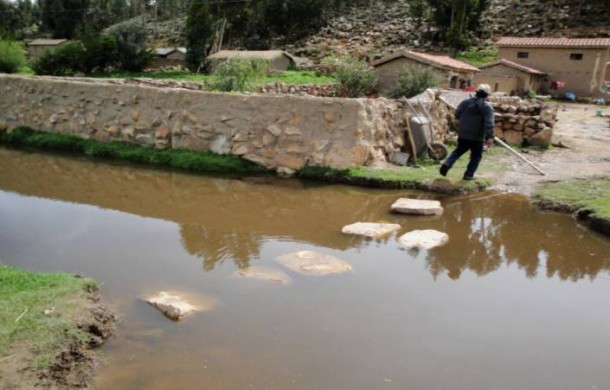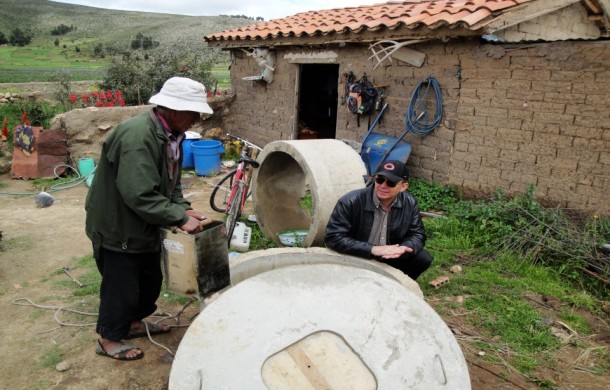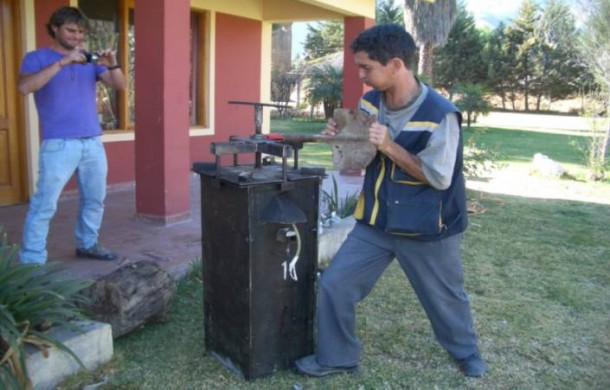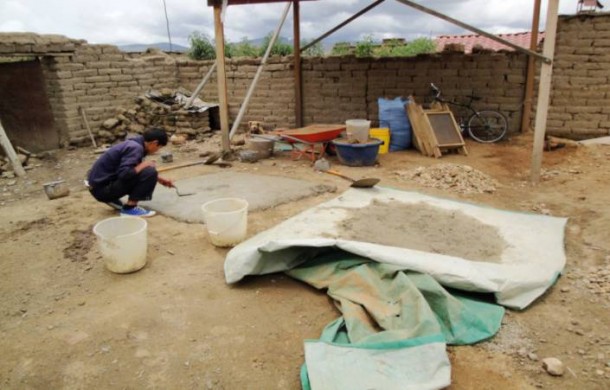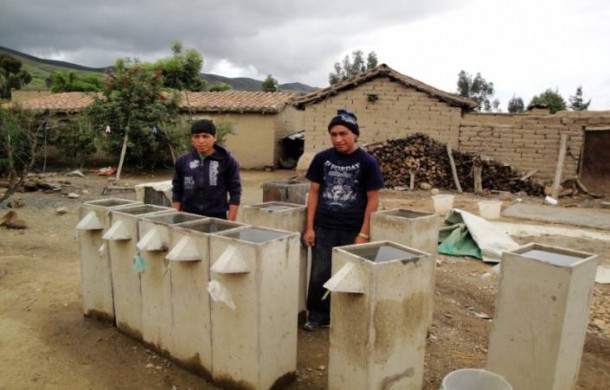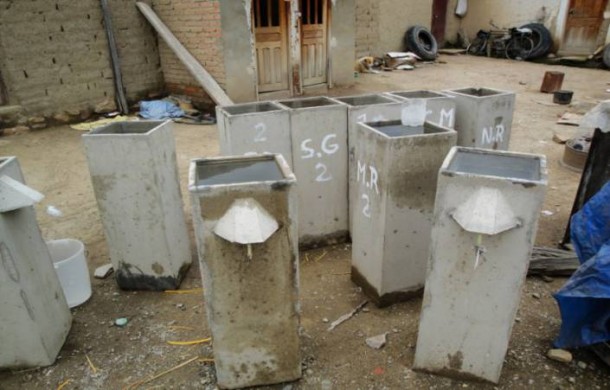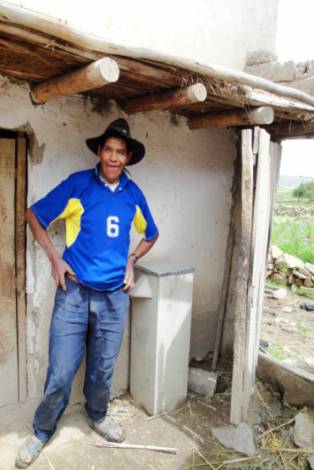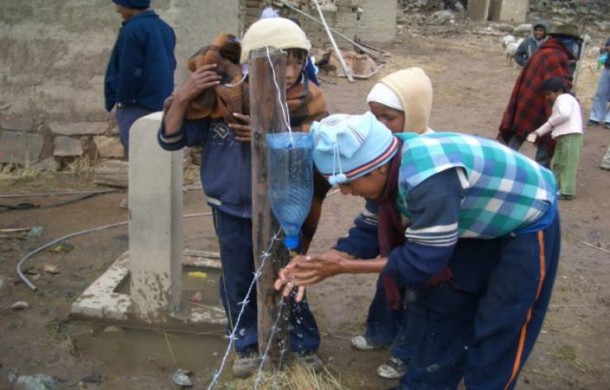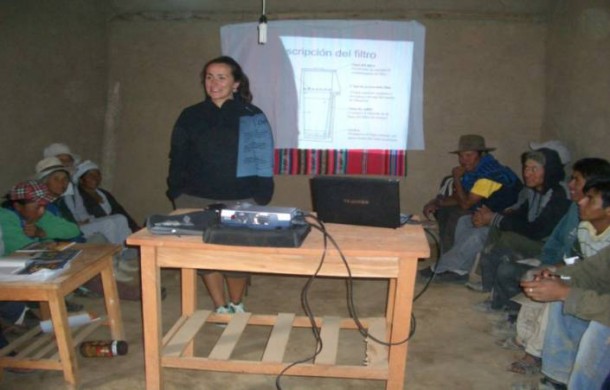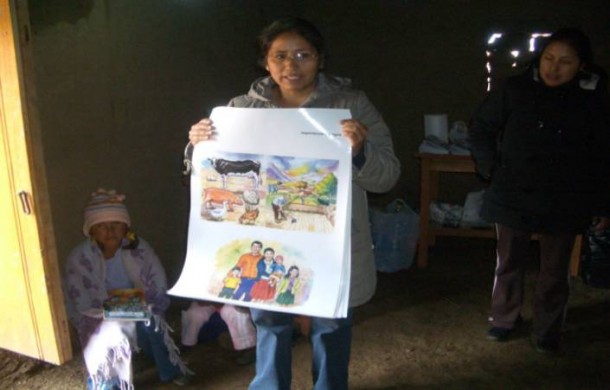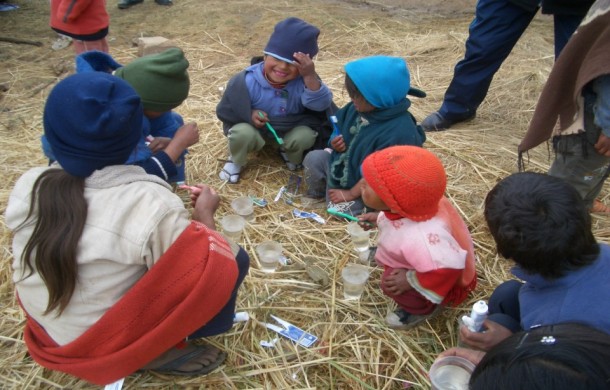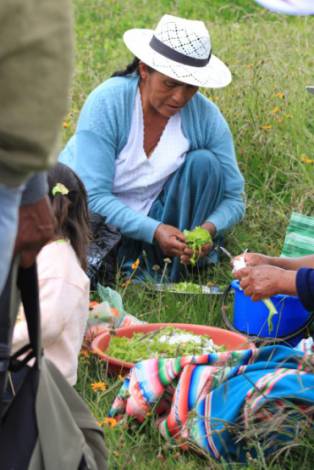COCHABAMBA DEPARTAMENT, BOLIVIA. Since 2011, H2O Bolivia has helped more than 2,000 families in rural Bolivia obtain clean water. It is now sponsoring greenhouse construction efforts, medical field-trips, and micro-financing.
A typical family from the rural community of Rancho Lobo, Bolivia stands with the new bio-sand water filter, designed by H2O Bolivia.
The first community (in the department of Cochabamba) Bolivia where H2O Bolivia worked. Since 2011, the organization has helped more than 2,000 families obtain clean, drinking water.
One of H2O Bolivia’s engineers makes a household visit to a candidate family to assess whether they would be included into the program. To qualify, the family must show interest and enthusiasm, must be willing to provide constant feedback, and must be able to afford the 1/3 share for the filter’s cost. The bios-and filter costs $25 USD, of which two thirds is subsidized by the organization.
Almost every home in Lobo Rancho has its own well use for cooking, cleaning, and irrigation. Representatives from H2O Bolivia are taking water samples which will be analyzed at a local university to see whether a filter is appropriate for the family.
A volunteer from the city of Cochabamba is using a steel mold to construct the water filters. The bio-sand filter is made of cement, which inside contains various types of sediment that provide natural filtration..
Community volunteers from Rancho Lobo are using and industrial sieve to separate four types of sediment grain sizes, which will then be carefully layered inside each bio-sand filter.
Volunteers alongside their filters.
Water filters marked by the owners of each family. By inviting families to see the construction process and participate in its development, H2O Bolivia hopes to instill a greater sense of ownership and responsibility (to maintain the filter).
A resident from Lobo Rancho with his new bio-sand filter. With regular maintenance by the owner, the filter will last for about five years.
After seeing the new filters, a few children decide to be creative and build a water spigot out of a 2-liter bottle.
Along with H2O Bolivia’s efforts to build water filters, it also develops workshops on subjects ranging from how to maintain a bio-sand water filter to how to minimize exposure from water-borne diseases. In the example above, a volunteer is discusses the many benefits of the filters and the importance of maintaining good hygiene practices.
After a successful launch with the filters, in 2012 H2O Bolivia began constructing greenhouse thanks largely to a fundraising campaign in Europe.
A medical volunteer discusses the importance of hygiene to children.
After the workshop on hygiene, kids brush their teeth with items donated by people in Cochabamba.
A woman preparing meals for a workshop event.

